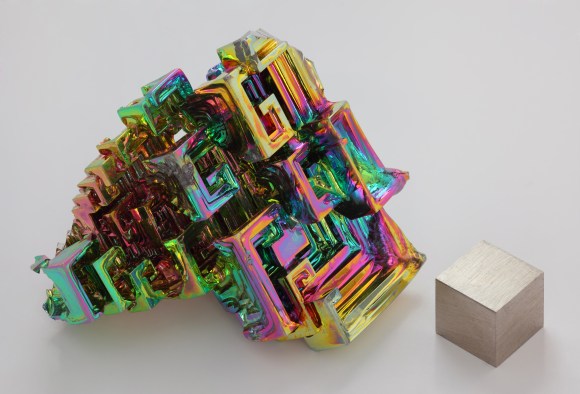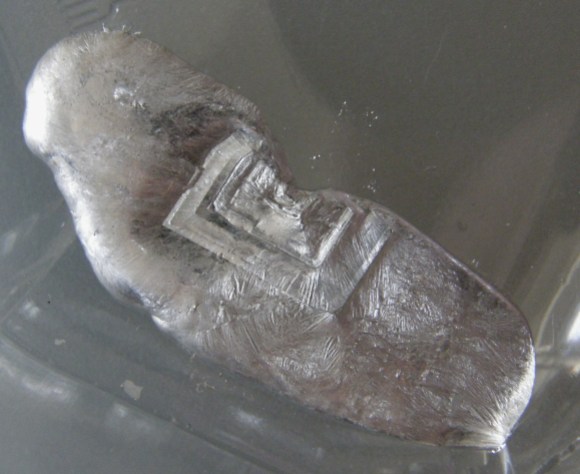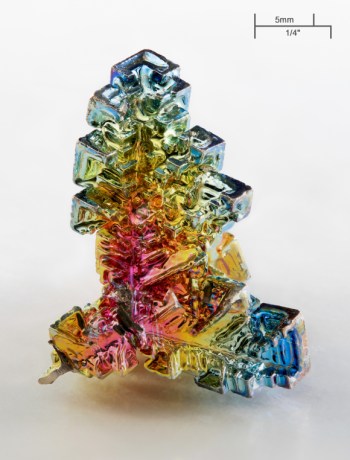
In the eighth grade, I was introduced to the new subject of chemistry. Most my classmates found it incredibly difficult, while I found it easy. My problem was that the next step up were university textbooks, which I couldn’t handle at the moment.
Instead, I gradually turned to Wikipedia to obtain the knowledge I wanted. Eventually, I realized that I could write Wikipedia articles, to give back to the site I’d taken so much from. I’d still be learning, but I’d also be helping anyone in a similar position to where I was.
I chose to take a narrow scope to my contributing: the elements of the periodic table. These form a set of articles that can be reasonably taken on—not finished by just one person, of course, but some tangible progress could be made by one.
And, of course, elements are the building blocks that, when combined, constitute the full diversity of chemistry. That made the choice clear.

I’m from Russia, so I first tried to break into the Russian Wikipedia, but I found it difficult to collaborate with the editors there. So I instead decided to move to the English Wikipedia, as I’d been wanting to improve my English anyway. Moreover, the English site had an entire “wikiproject” dedicated just to the elements.
I chose fluorine as my first article-project because I thought it would be the easiest one. It only assumes only one oxidation state in its compounds, was not a major influence on history or industry (like, say, iron or oxygen), and was in pretty bad condition.
I finished the article in January 2011, and nominated it for “featured article” (FA)—a quality marker reserved for Wikipedia’s best work—status in April. As it turned out, I was wrong about how easy it would be, as the nomination failed. Still, it wasn’t all bad: the article had gained some support, and I gained a lot of knowledge about how to write Wikipedia articles. A lot of that came from TCO.
TCO was a great editor to get in contact with. I can’t thank him enough for giving so much of his time. He certainly delayed my attempts to get the article featured, but he also offered a lot—and that turned out to be a far better thing. Part of what he had for me was a new understanding of the importance of things and how I needed to do work beyond was needed for that “featured” status. This would allow to have the star and enjoy the great article I’ve produced. That’s not to say I didn’t want to write great articles, but there were moments when you think, “aah, it’ll pass the FA review anyway, they won’t notice.”
Nowadays, I’ve become my own measure of quality. It was that that mattered most, not the stars. This didn’t happen too quickly. I nominated fluorine for featured article again, albeit somewhat prematurely, in September. More and more work was being put into it, and I was becoming more and more disillusioned with it, so I’ve decided to diversify my work.

I produced a number of GAs, two of which became so complete by the time I submitted them that I decided keep going and aim for FA as well. I had dove into the interesting topics of heavy and superheavy elements, producing a good, detailed, and Soviet-styled (as I based it on a Soviet book) article on astatine, plus a nice short beautiful article on ununseptium (now tennessine), which only lacked one thing—prose quality. Had it not been for this, we would’ve gotten it on the first try; but it had, and we didn’t.
But soon enough I entered university in 2013 and immediately lost most of my free time. This made rewriting Wikipedia articles rather difficult. Eventually, with lots of work put into them, all three articles ended up as FAs in late 2014 and 2015. But this happened only after TCO’s influence hit me one more time.
Back in 2011, TCO wrote a report titled “Improving Wikipedia’s Important Articles,” which advocated for focusing Wikipedia’s editors on vital topics, ones read by the most people. While panned by other editors at the time, I discovered it in 2014 and believe that it’s an absolutely great masterpiece. When writing ununseptium back in 2011–12, I tried to write it in a way that was fascinating but accessible. This challenge helped hook me into editing Wikipedia. You need to be immerse yourself in the topic, but you also need to make sure you’re delivering the information you’ve learned in a way that others can understand. Reading TCO’s report helped galvanize just how important this is.
Sadly, TCO left Wikipedia a few months before fluorine got its featured article star. The article would’ve gotten the star far earlier if it wasn’t for him, but it wouldn’t be as good, either. Besides, this taught me about writing articles in general and changed my perception of the topics I write about.

I was mostly inactive in 2015–16, though able to help with a few other projects like thorium, with User:Double sharp. In 2016, I decided to go for an important article once again. Wikipedia’s readers have been the top priority for a long time for me now, and after all I’ve been through, it didn’t only matter how I serve the information on the topic I’ve chosen, but also how I choose the topic.
So, I started work on lead, a good choice indeed. Never would I think an element could be so interesting in human life and so important in history. I’ve absolutely enjoyed that and want to go on. After it’s done, it will be aluminium, iron, and—if I ever to get to it—gold.
I may even go further after that, picking an even more important article, not even necessarily about chemistry. I’m currently considering rewriting the article on the continent of Europe, but it’s still so far away I can’t tell if this will ever happen.
But I definitely want it to.
Mikhail Boldyrev (User:R8R Gtrs), Wikipedian

Can you help us translate this article?
In order for this article to reach as many people as possible we would like your help. Can you translate this article to get the message out?
Start translation